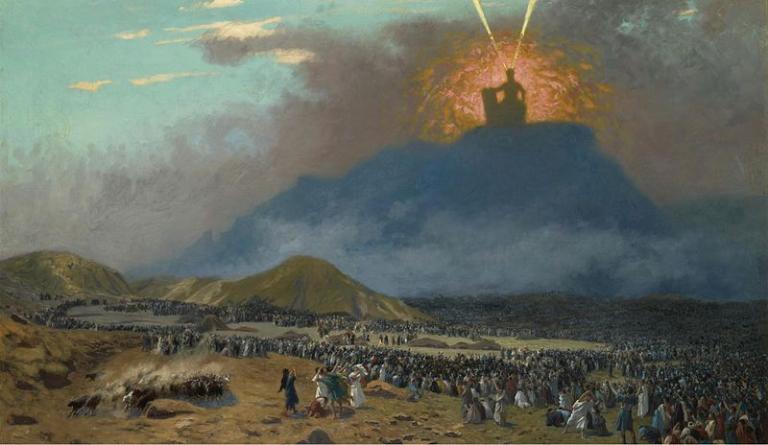
Wikimedia Commons public domain
I’ll be returning a bit over the next few days to Jordan B. Peterson, 12 Rules for Life: An Antidote to Chaos (Toronto: Random House Canada, 2018). Here’s a passage that struck me:
The philosophical study of morality — of right and wrong — is ethics. Such study can render us more sophisticated in our choices. Even older and deeper than ethics, however, is religion. Religion concerns itself not with (mere) right and wrong but with good and evil themselves — with the archetypes of right and wrong. Religion concerns itself with the domain of value, ultimate value. That is not the scientific domain. It’s not the territory of empirical description. The people who wrote and edited the Bible, for example, weren’t scientists. They couldn’t have been scientists, even if they had wanted to be. The viewpoints, methods and practices of science hadn’t been formulated when the Bible was written.
Religion is instead about proper behaviour. It’s about what Plato called “the Good.” A genuine religious acolyte isn’t trying to formulate accurate ideas about the objective nature of the world (although he may be trying to do that too). He’s striving, instead, to be a “good person.” It may be the case that to him “good” means nothing but “obedient” — even blindly obedient. Hence the classic liberal Western enlightenment objection to religious belief: obedience is not enough. But it’s at least a start (and we have forgotten this): You cannot aim yourself at anything if you are completely undisciplined and untutored. You will not know what to target, and you won’t fly straight, even if you somehow get your aim right. And then you will conclude, “There is nothing to aim for.” And then you will be lost.
It is therefore necessary and desirable for religions to have a dogmatic element. What good is a value system that does not provide a stable structure? What good is a value system that does not point the way to a higher order? And what good can you possibly be if you cannot or do not internalize that structure, or accept that order — not as a final destination, necessarily, but at least as a starting point? Without that, you’re nothing but an adult two-year-old, without the charm or the potential. That is not to say (to say it again) that obedience is sufficient. But a person capable of obedience — let’s say, instead, a properly disciplined person — is at least a well-forged tool. At least that (and that is not nothing). [102-103]
Now, I don’t fully buy everything above. So far as I can tell, Jordan Peterson isn’t a theist. Or, at least, not a very robust one. His thinking above is very much like the late Stephen Jay Gould’s notion of the “non-overlapping magisteria” of religion and science, which I also reject, at least in part. But there’s truth in what Dr. Peterson has to say. Religion isn’t merely a failed attempt at science, and it never was.












